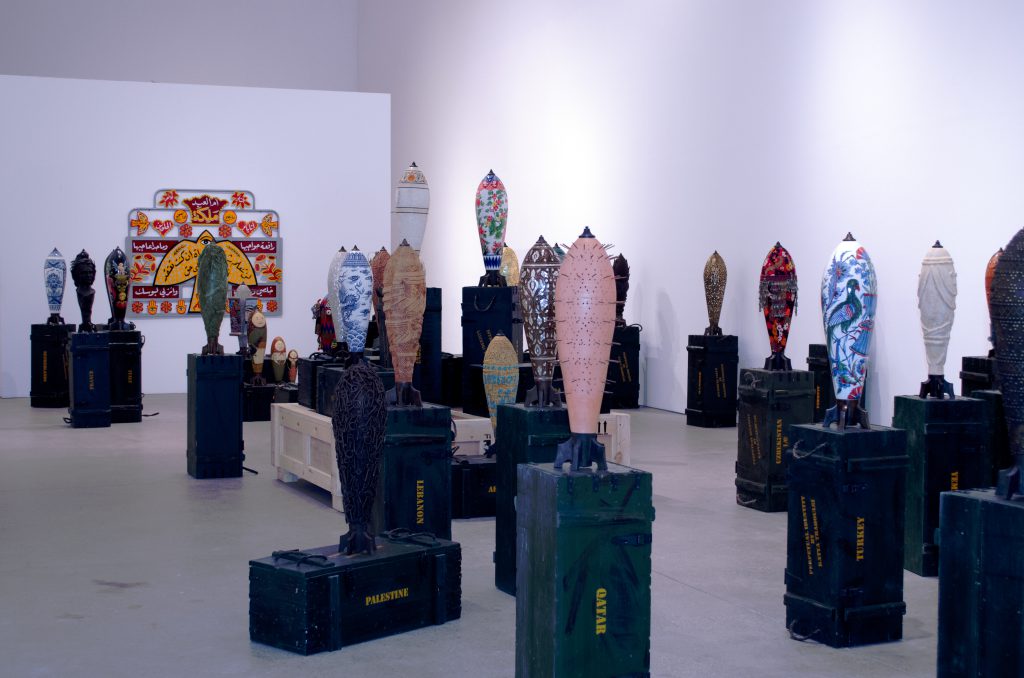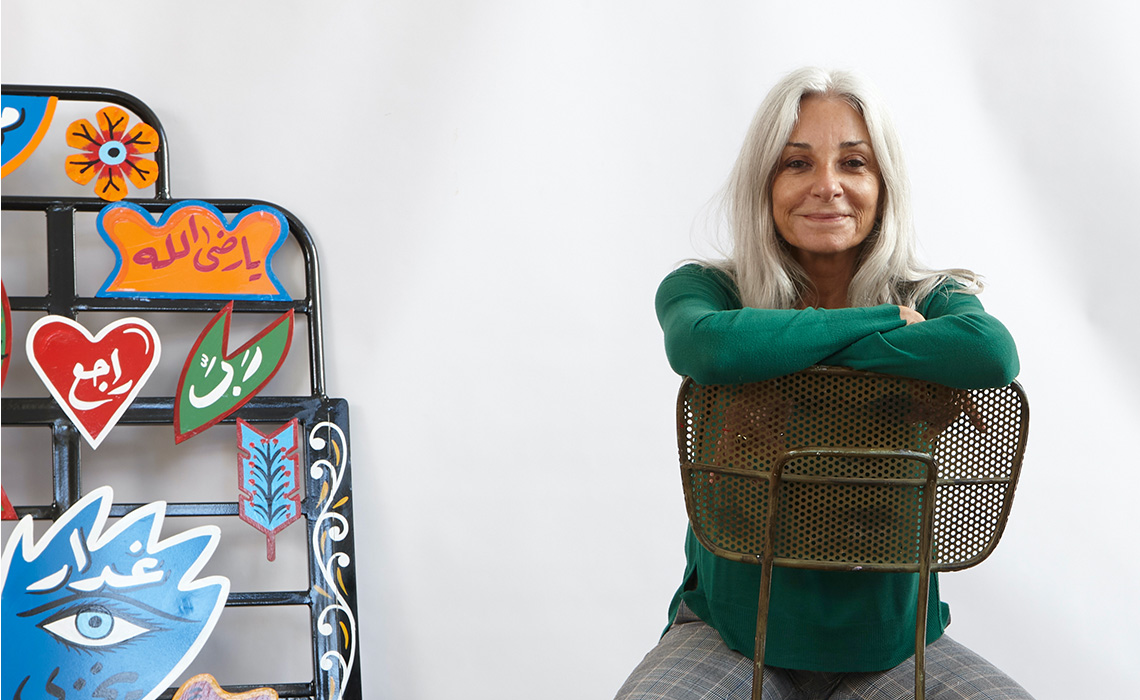The artist speaks to Canvas about her current exhibition, Perpetual Identities, at Dubai’s Leila Heller Gallery and the impacts of war on identity and culture.
Canvas: It’s been rumoured that you received a mortar shell as a gift when you were a teenager. What is the story?
Katya Traboulsi: When the Lebanese Civil War started in 1975, I was 15 years old. I grew up and lived in a country where war was ongoing and the country is still corrupted by it. So, for my 15th or 16th birthday some of my friends in the neighbourhood, who were in the militia, couldn’t get me a gift so they brought me an empty mortar shell. The shell stayed in my house as a symbol of pride, a trophy. I was very proud to have it and when you’re young you don’t realise the absurdity of having this object.
When did the symbolism of the mortar shell change for you?
In 2011, when the war in Syria started, a link happened with this shell, triggered by the trauma that such objects bring. The fear of a shell falling on your neighbourhood is one of the biggest fears you can have. You feel helpless. I thought, now here’s another useless war, another population who will go through destruction and poverty for nothing, because the result of wars is always just destruction and hatred.
How did this experience evolve into the Perpetual Identity project?
The inspiration grew from a desire to create a project of peace. We are all connected, and if there is a situation or war in the Middle East, then world is not well, as all countries are infected with this sickness. I therefore decided to create a huge project that represents 46 countries across different continents. I decided to embed cultures and identities into each of the shells, which are all the same size because we’re all the same. The identity is created in each shell with the help of artisans from Lebanon, as well as some of the other countries, such as the Philippines, India and Nigeria. I worked with artisans around the world who were able to translate what I wanted to say.

What did you hope to say as a culmination of the project?
That every culture is wonderful, and that instead of creating boundaries, hatred and rejection of each other, we should embrace each other. Then we can exchange so many beautiful things. Humanity has a richness of beauty as a result of all our different cultures. The occupation and destruction of warfare creates limits, and by engaging in war we impoverish ourselves from knowledge and growth.
You are also worked with artisans on the series Rej3a ya mama (2022–23), also included in the exhibition at Leila Heller Gallery in Dubai.
Yes, there are three pieces at Leila Heller. I worked on this project with artisans in Tripoli in Lebanon. They create the Pop Art seen on the back of trucks around the country. The painted rear truck doors have existed for a long time, but no one had ever credited it as Pop Art, even though we have been living with it for ages. The symbols on the trucks represent heritage and identity, as well as a desire to return home safely, with painted dedications to the evil eye, protection and proverbs. My transformations respected their domain as truck doors, but I added my own creativity. These trucks aren’t political, which was very important to me. They are connectors, they connect the north, south, east and west, taking products and foodstuffs to all of the villages, cities and towns across the country. They are the blood line of Lebanon.
Perpetual Identities runs until 1 September 2023



